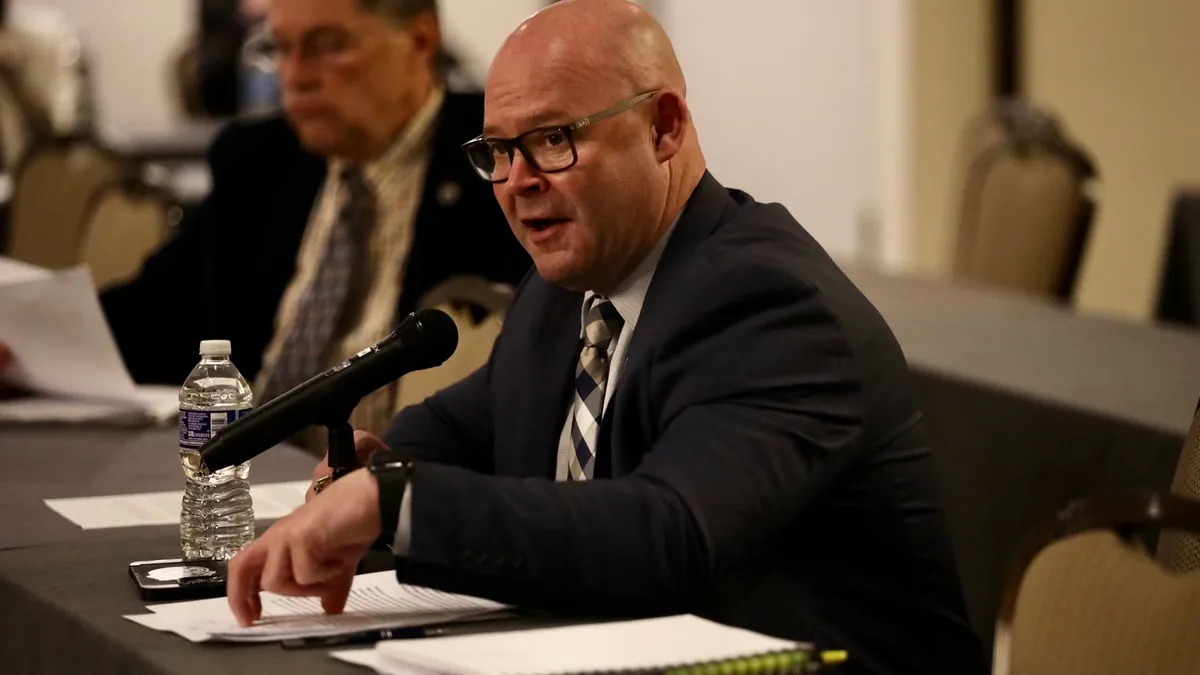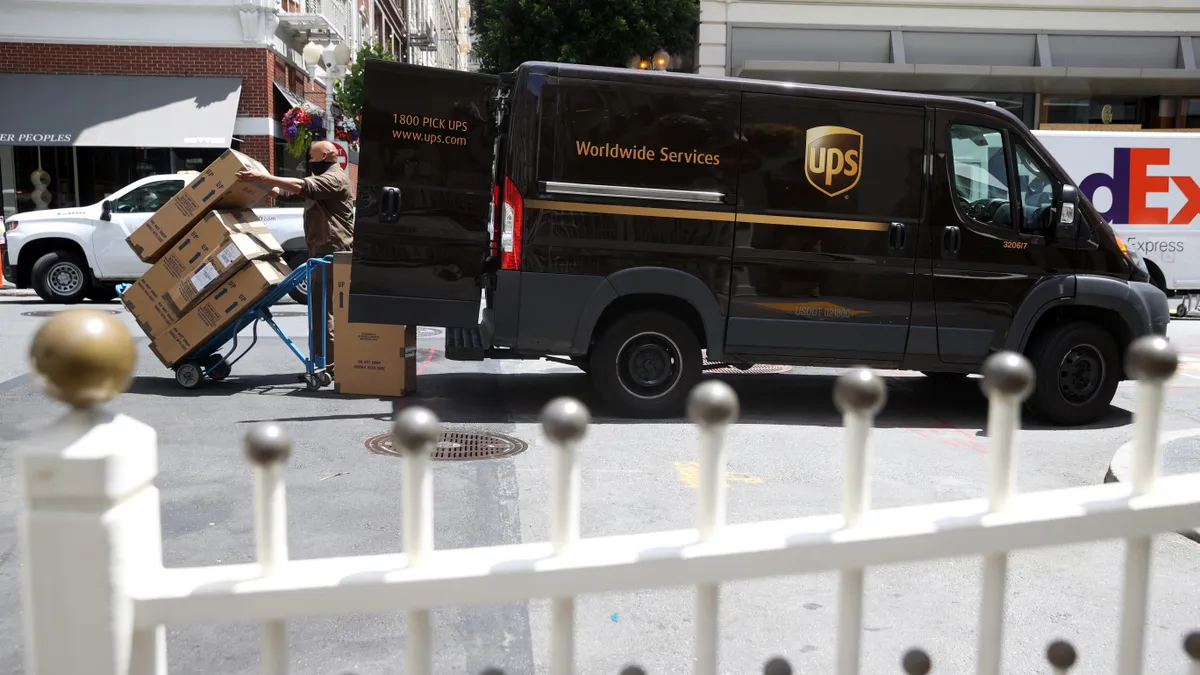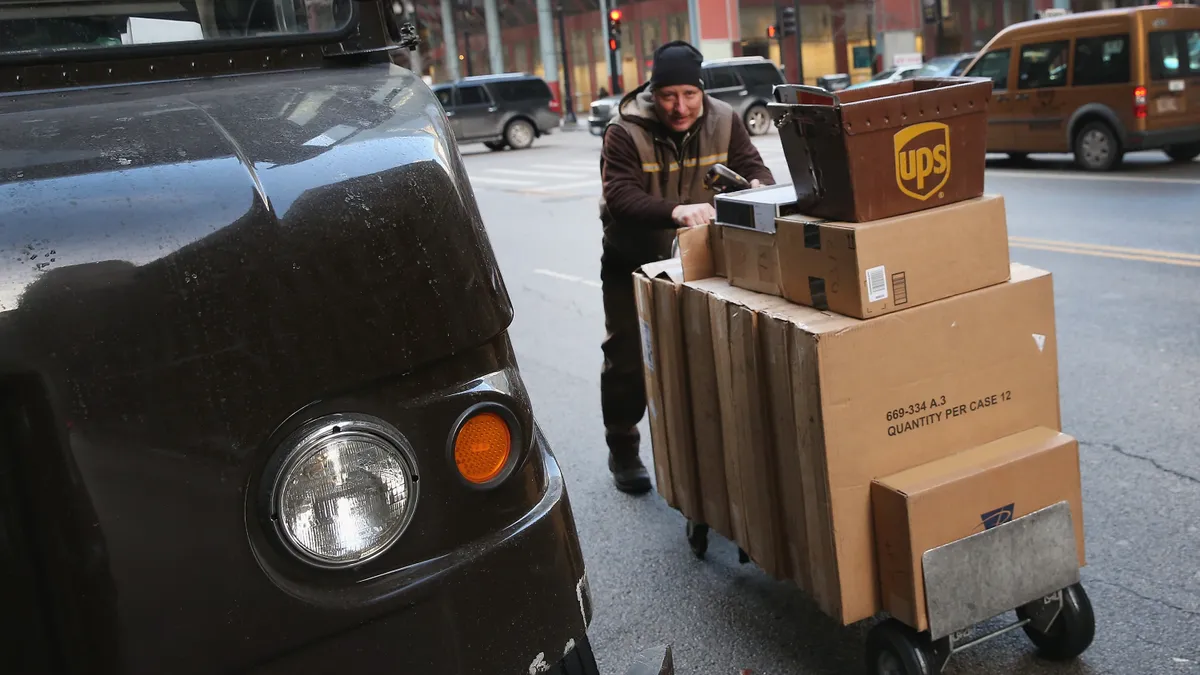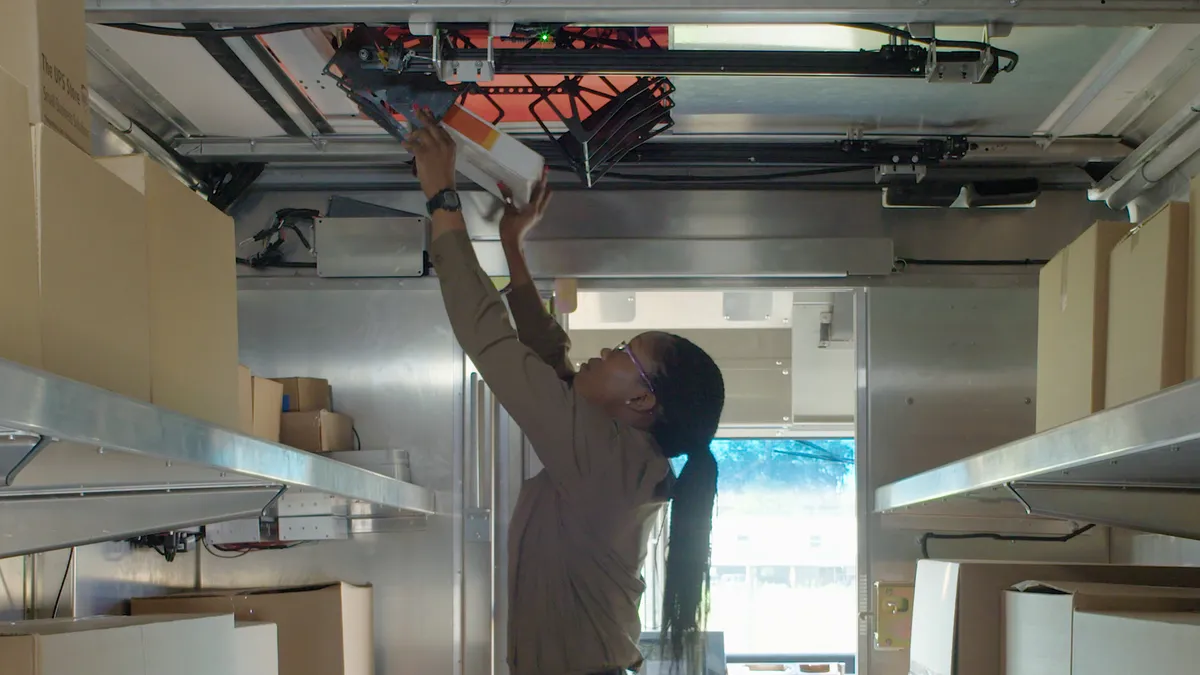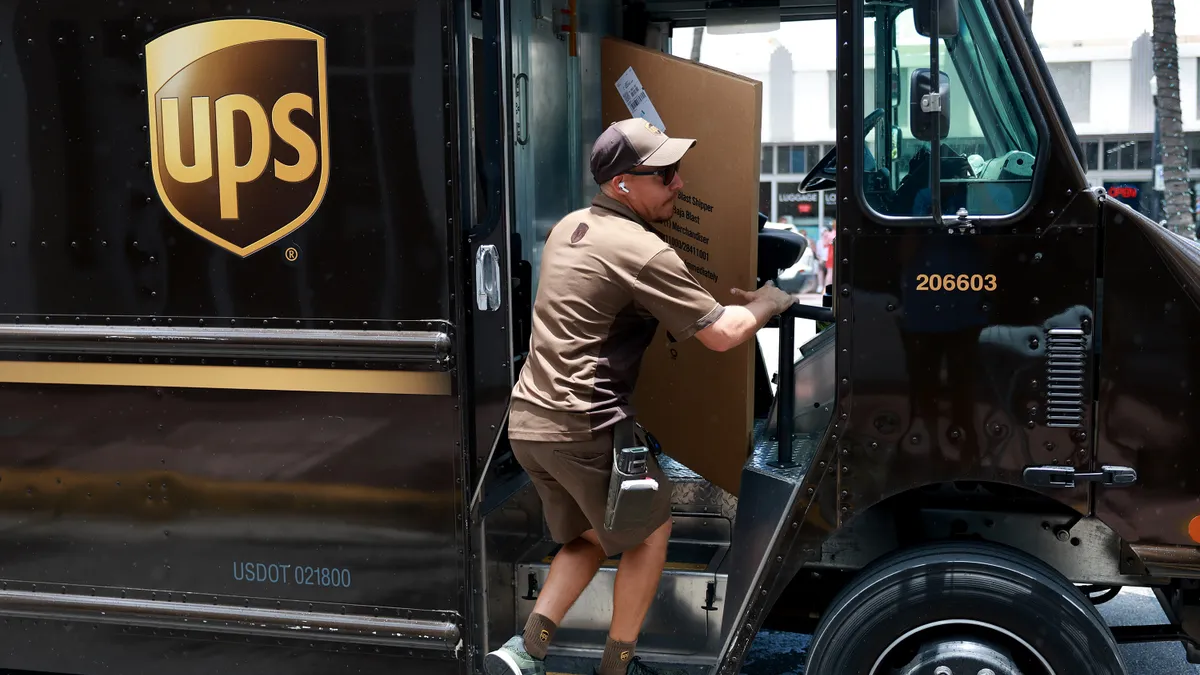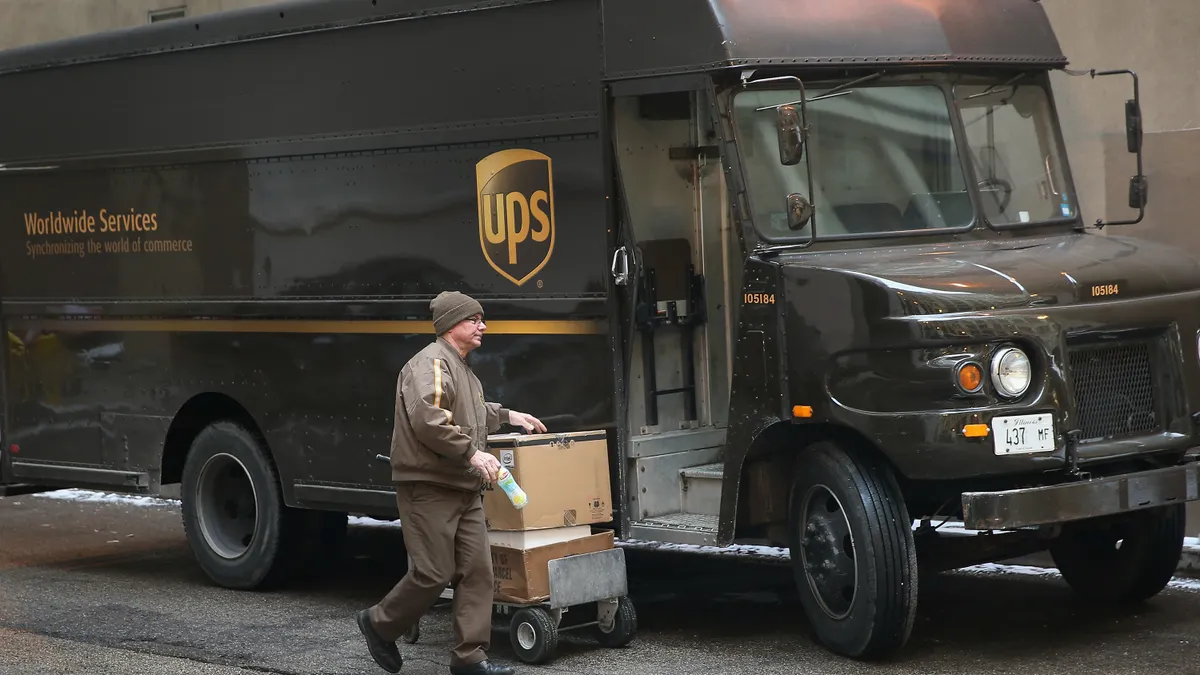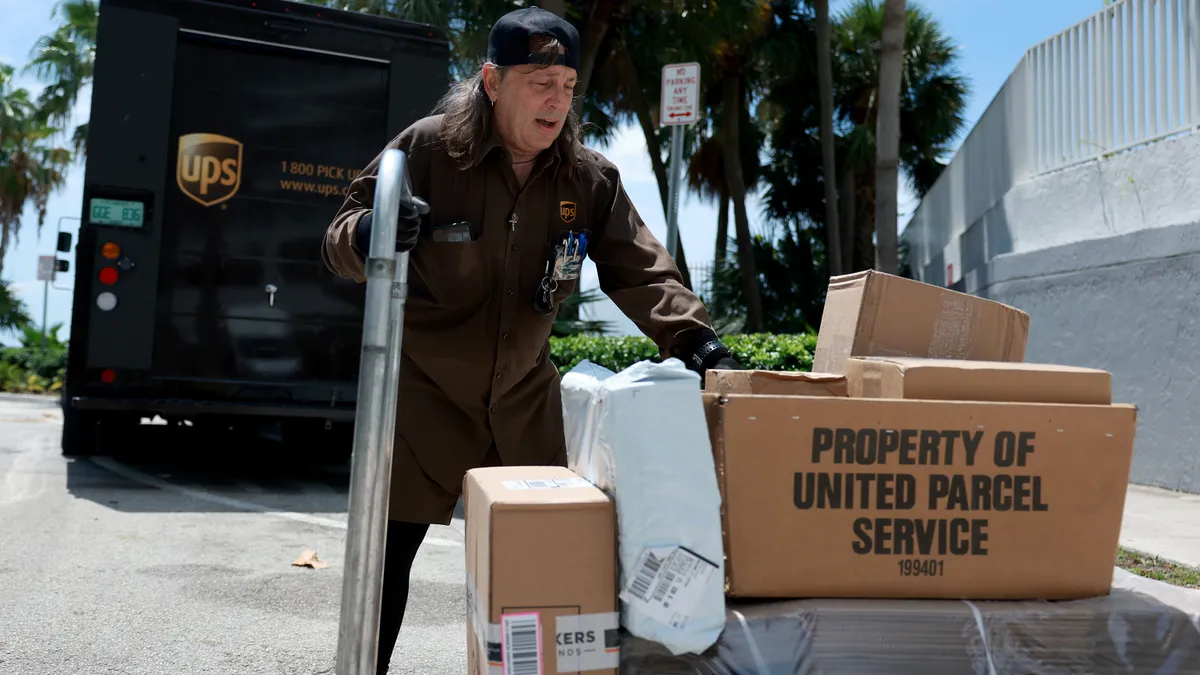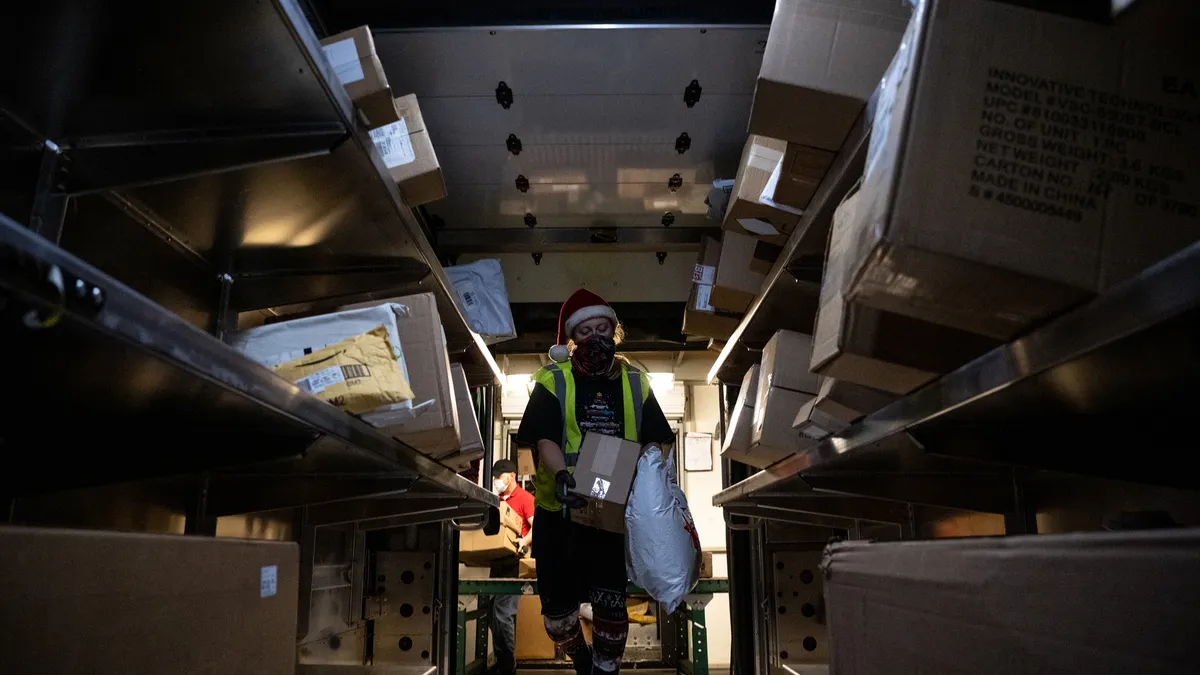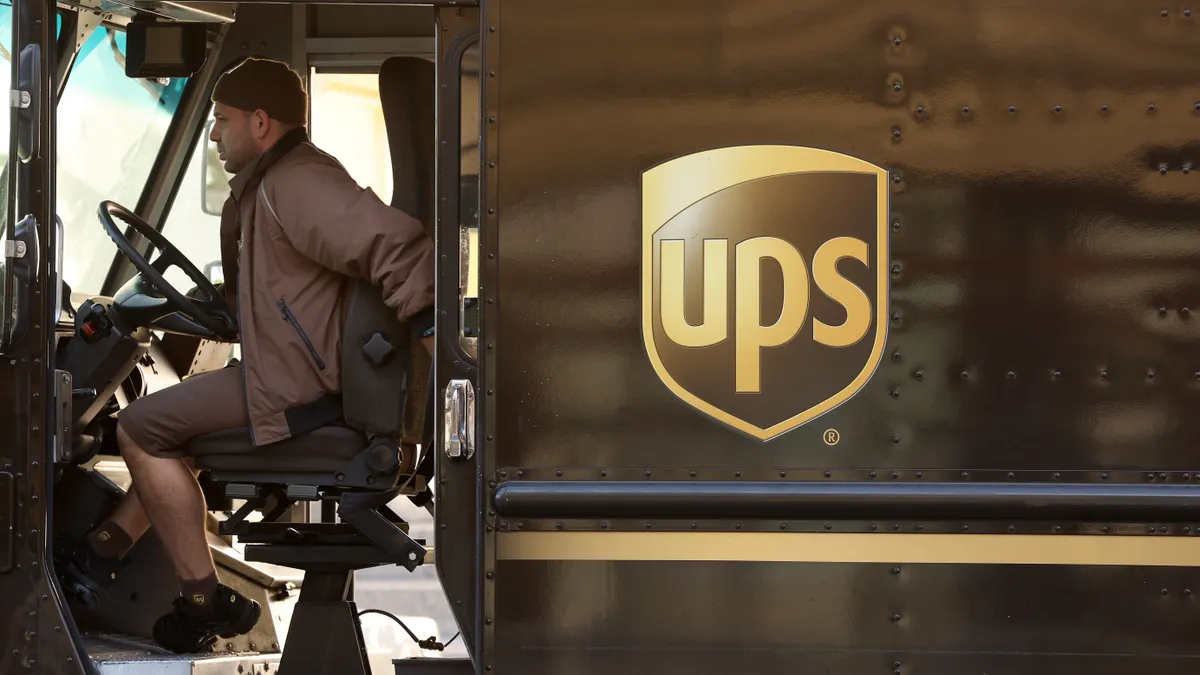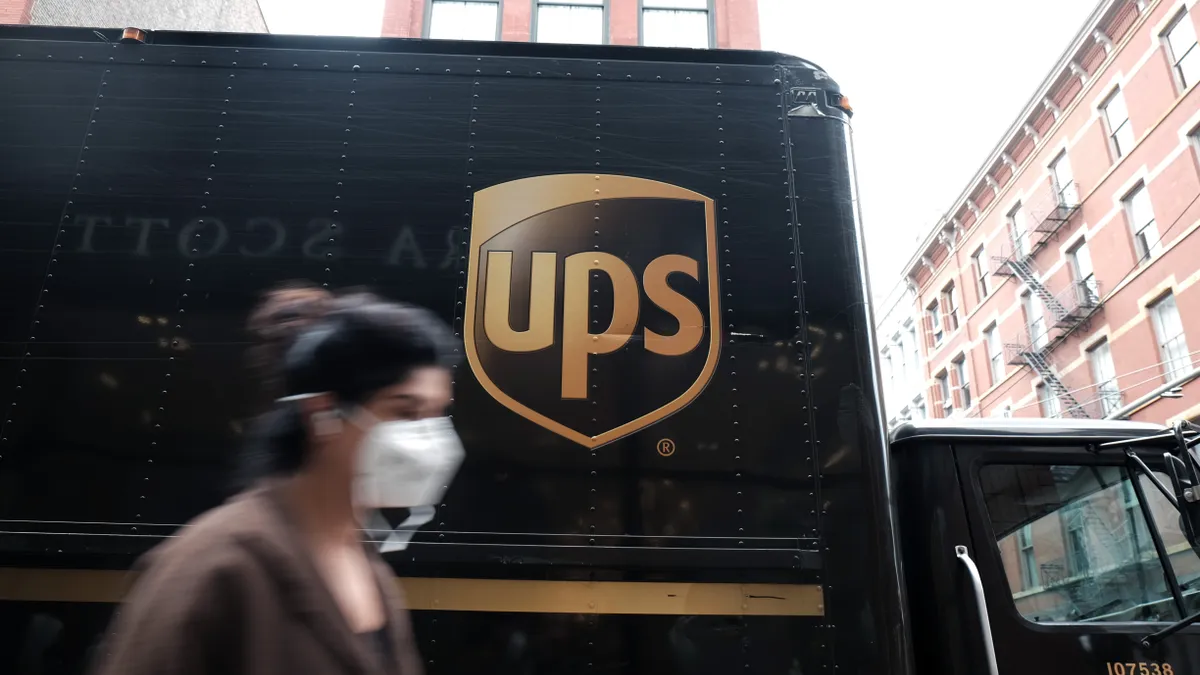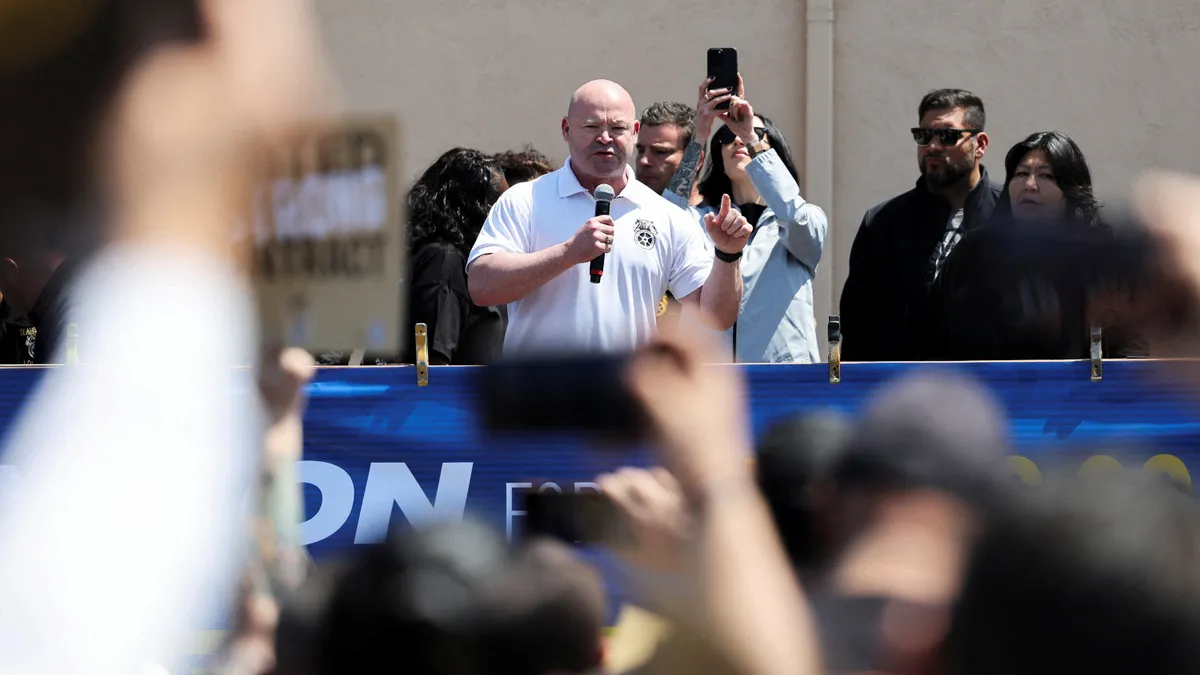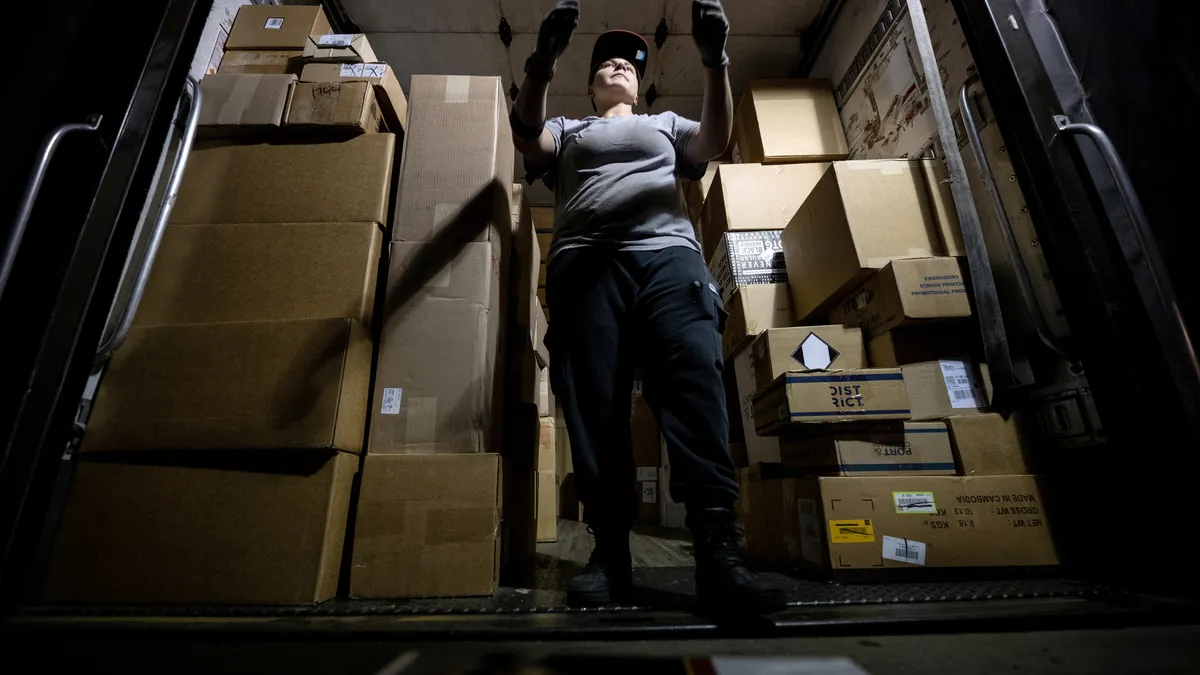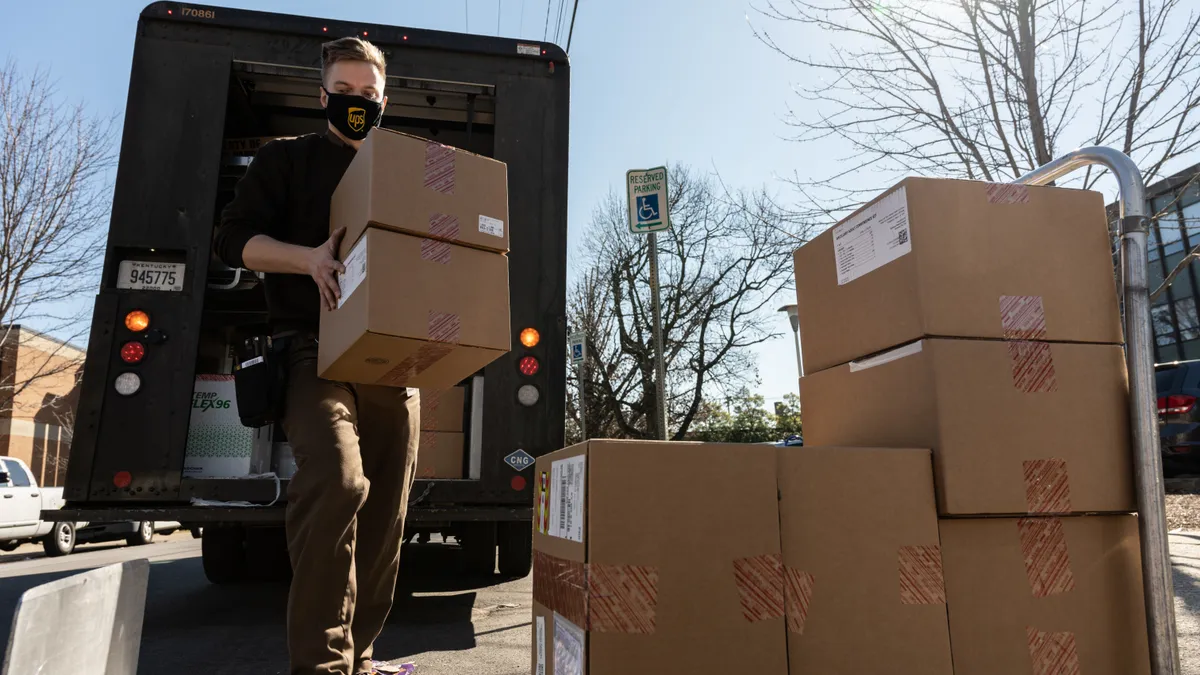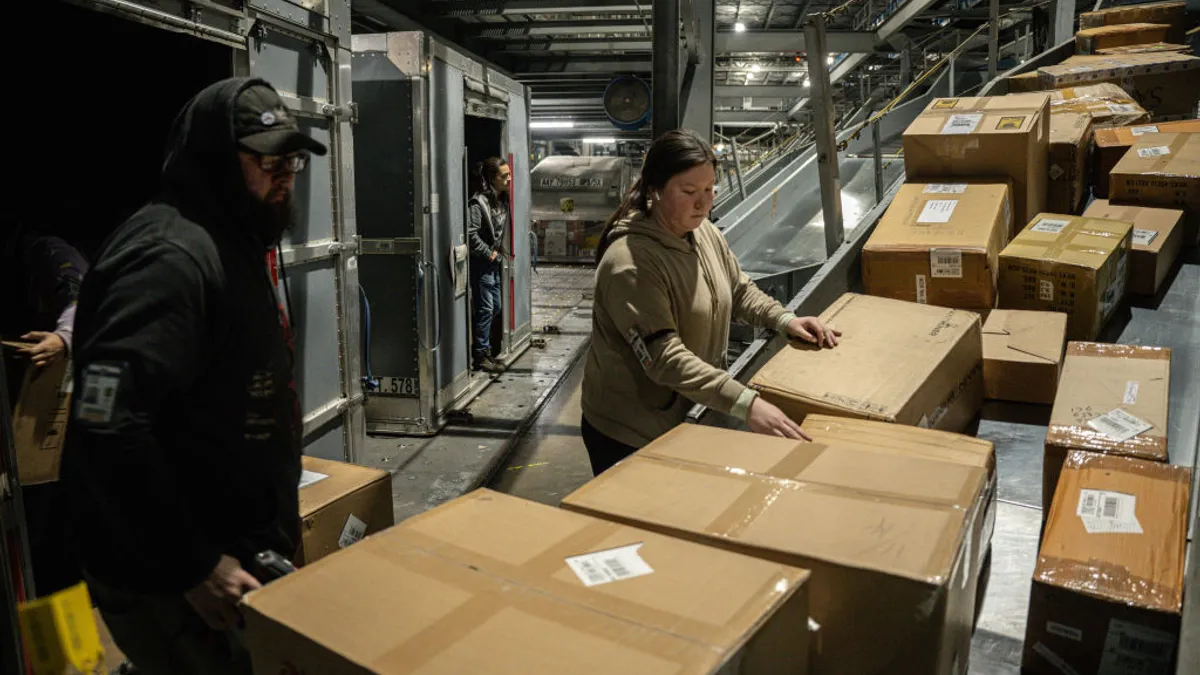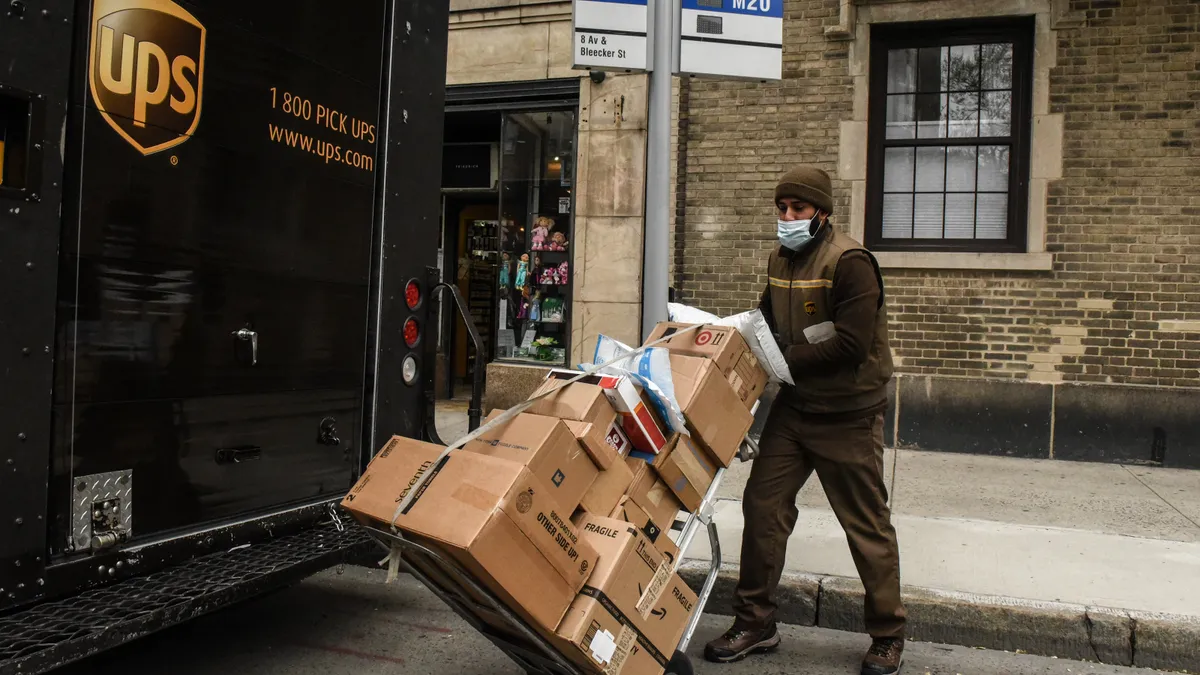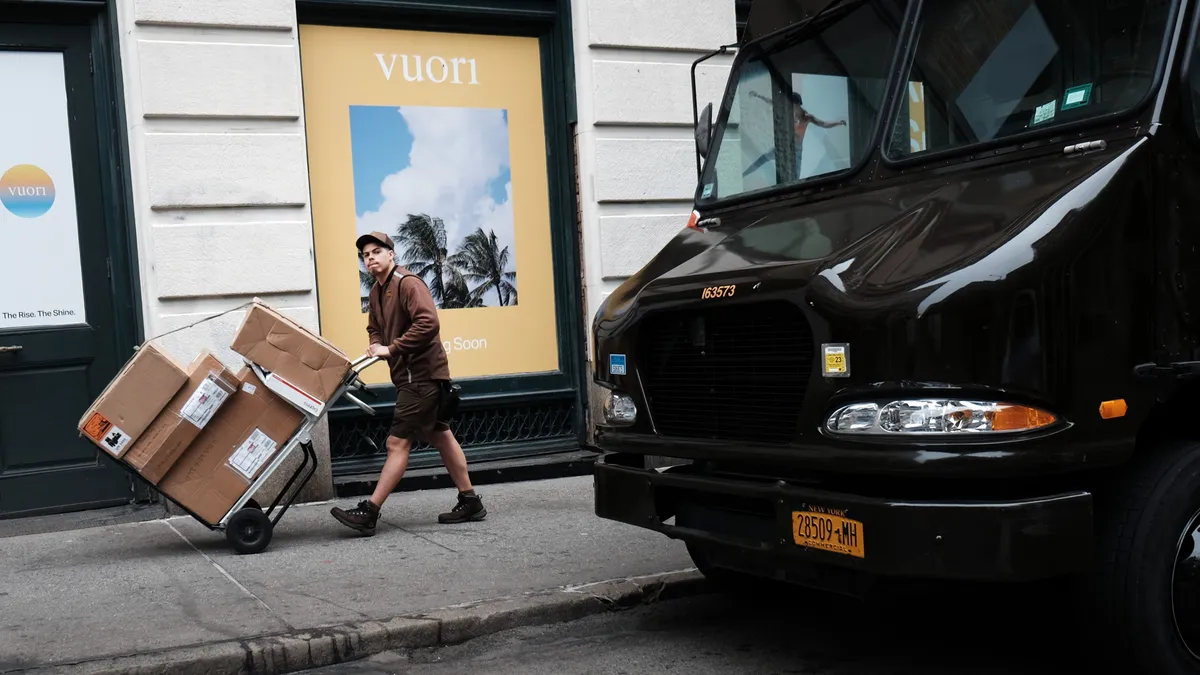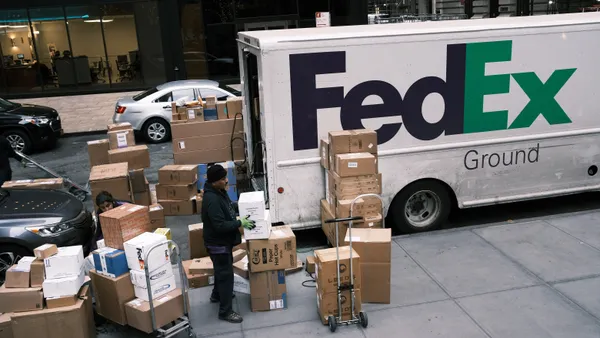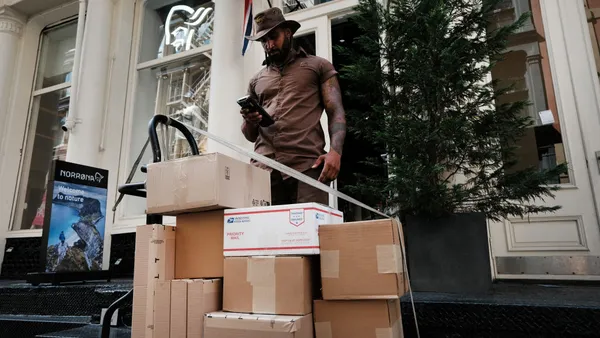Dive Brief:
- Differing proposals over part-time employee wages are a major reason national contract negotiations between UPS and the International Brotherhood of Teamsters remain at an impasse, said Sean O'Brien, the union's general president.
- “We are probably $6 to $7 per hour apart on where these part-timers need to be for starting rates of pay, but also where they need to be for the long-term employees,” O'Brien said in an interview with Supply Chain Dive on Thursday afternoon. The Teamsters are readying a strike if a deal isn't reached when its current contract with UPS expires July 31.
- The two sides haven't met for further negotiations since Wednesday morning. "They told us at 4:15 a.m. that they had no more to give to part-timers, and that's where we're at — there's no sense in sitting around and looking at each other," O'Brien said.
Dive Insight:
O'Brien said part-time employees are a critical component of UPS' network, helping sort and load packages before they are delivered to customers. Because of that, they should be rewarded as such with higher wages and more full-time employment opportunities, he said.
Although the company’s business is weathering volume declines and expects demand to remain pressured for the remainder of the year, O’Brien said the union won’t “sell our members short” in negotiations due to short-term challenges.
"It's embarrassing as a company that they don't want to take care of these folks," the Teamsters leader said.
Part-time employees earn an average of $20 an hour after 30 days, according to UPS, with many workers starting as part-timers before applying for full-time positions. UPS said in a statement Wednesday that it's proud of the proposals it has presented to the union, adding that it builds on the company's "industry-leading pay."
"We have nearly a month left to negotiate," UPS said. "We have not walked away, and the union has a responsibility to remain at the table."
With the current contract expiring in a few weeks, experts say UPS' chances of avoiding a strike are shrinking. O'Brien said there's still a chance to reach a tentative agreement before then, adding that whether or not a strike happens is "totally up to UPS."
"We're financially positioned to sustain a long-term strike — it's not a problem," O'Brien said.



